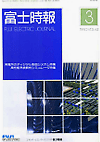FUJI ELECTRIC JOURNAL Vol.63-No.3 (Mar/1990)
 |
Digital Controllers for Power Stations / Advanced Power System Analyzer |
Present Status and Prospects for Digital Control Technology
Tsuneyoshi Ohboshi
The control technology of electric power networks and equipment after an automatization age in 1950s, has been in a digital-control age since about 1970, which has basically been caused by a challenge to higher performance and reliability in line with social progress.
The former control of power networks and equipment was composed of individual control systems; however, rapid technical and economical progress in digital technology has made bounderies between the controls indistinct.
This paper outlines the present status and prospects of the technology.
The former control of power networks and equipment was composed of individual control systems; however, rapid technical and economical progress in digital technology has made bounderies between the controls indistinct.
This paper outlines the present status and prospects of the technology.
Architecture of Digital Controllers for Power Stations
Hiroaki Nojiri, Tetsuo Saito
The introduction of programmable controllers (PC) accelerated application of digital systems in power stations: to secondary control functions in 1970s and to main control functions in 1980s. In addition to the basic performance such as high-function, fast processing and high reliability, the digital controller requires network structuring for large systems and unified or unmanned control using a PC in small systems. The PC is provided with various functions to meet these requirements.
Digital Control Systems for Thermal Power Stations
Kazumi Nishida, Koichi Fukutomi
Owing to recent improvement in the reliability and serviceability of programmable controllers (PC), their application to thermal power plants ranges over main control equipment such as AVR and EHG.
This paper introduces digital control equipment (AVR, EHG, and ASS), sequential control equipment, interlock equipment, and automatic test equipment using the 32-bit programmable controller MICREX-F500 in thermal power stations.
This paper introduces digital control equipment (AVR, EHG, and ASS), sequential control equipment, interlock equipment, and automatic test equipment using the 32-bit programmable controller MICREX-F500 in thermal power stations.
Digital Control Systems for Hydraulic Power Stations
Shigeru Aiba, Takehiro Tonozuka
Programmable controllers (PC) have been used generally in hydraulic power stations, being key components indispensable to the control equipment. In particular, almost all of recent control configurations are based on PCs.
This paper describes such modern digital control systems for hydraulic power stations.
This paper describes such modern digital control systems for hydraulic power stations.
Multivariable Adaptive Digital Generation Control System
Hiroyuki Tanaka, Shunichiro Hanada, Yoshiteru Ueki
Fuji Electric has developed a practical model for the above system (TAGEC) based on the modern control theory. The model was developed from the test result of prototype model for principle verification, and enables long-term unmanned field operation equipped with exclusive interface cards including an IAI card. The system was verified with the power system simulator at Central Research Institute of Electric Power Industry and the result proved its superiority to conventional systems. Further, it is under a long-term field test in Shin'oi Power Station of The Kansai Electric Power Co., Inc. in practical operation at 32 MW.
Development of an Advanced Power System Analyzer
Hirosuke Doi, Sumio Yokokawa, Mitsuru Tanimoto
With progress in digital technology, digital simulation is mostly used in power system planning and system phenomenon analysis in place of tests with a model system composed of a few generator and transmission-line models or with an actual power system. On the other hand, a phenomenon analyzer for multi-machine power system is strongly required, which is a large analog real-time power system simulator. This paper outline a large advanced analog power system analyzer with 30 generator models and 300 line models completed by The Kansai Electric Power Co., Inc., Hitachi Co., Ltd. and Fuji Electric.
System Component Models for an Advanced Power System Analyzer
Shirou Suzaki, Mitsuo Saitoh, Tomohiro Suzuki
The advanced power system analyzer has been developed by The Kansai Electric Power Co., Inc. in cooperation with Hitachi Co., Ltd. and Fuji Electric Co., Ltd. This real-time analog simulator aims to reproduce various phenomena in electric power networks exactly and to predict complicated unknown phenomena. This paper describes an outline of the system component models (generator, transmission line, load, transformer, and circuit breaker) supplied by Fuji Electric.
Automatic Network Configuration System for an Advanced Power System Analyzer
Yasuo Morioka, Reiji Takeuchi, Hirotoshi Sato
The major reason why it was difficult up to now to form large analog simulators for analyzing power system phenomena is that complicated connections between the component models increase rapidly with scale enlargement and lower reliability accordingly. To cope with this situation, Fuji Electric has developed a computer-aided automatic network configuration system which automatically selects optimum models and makes connections between the models, thereby realizing an advanced large-scale power system analyzer.

